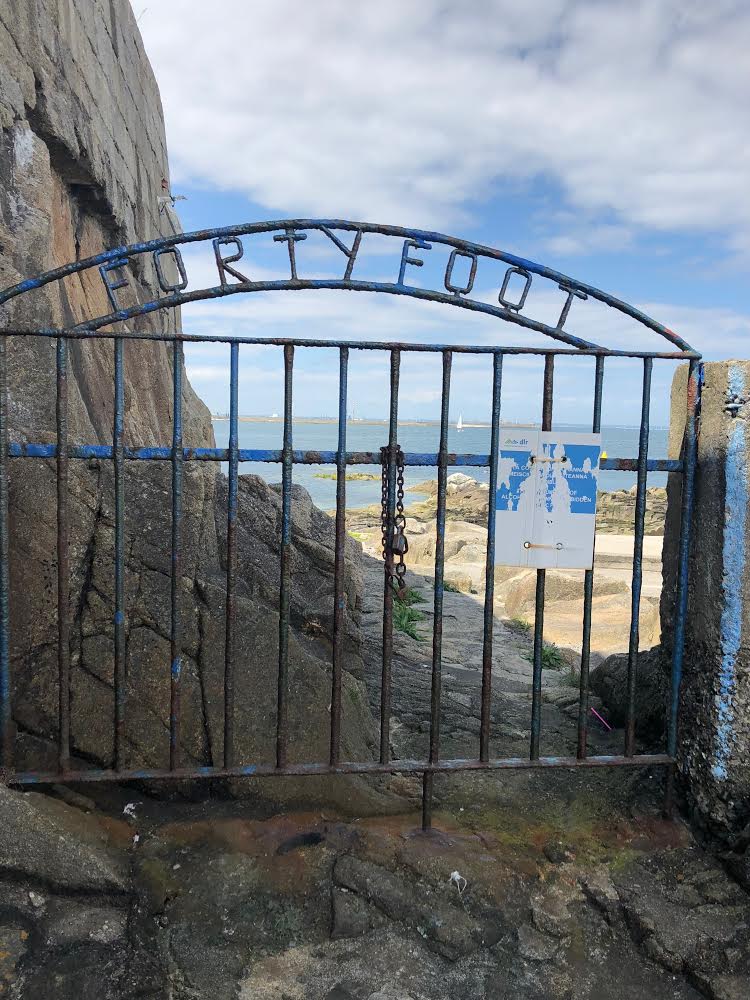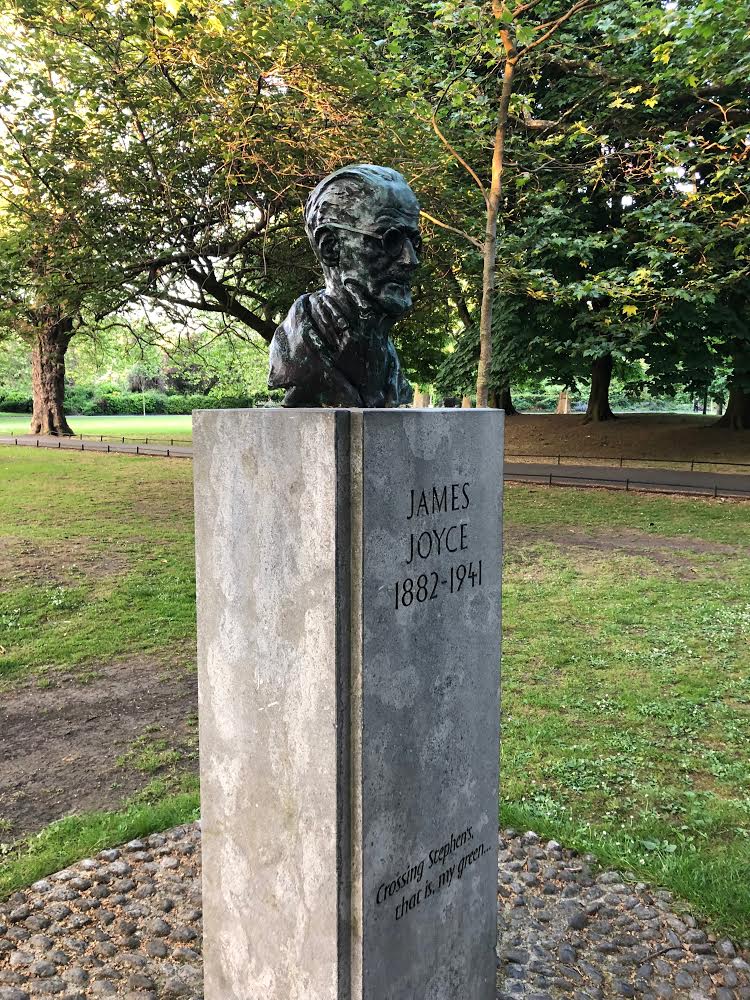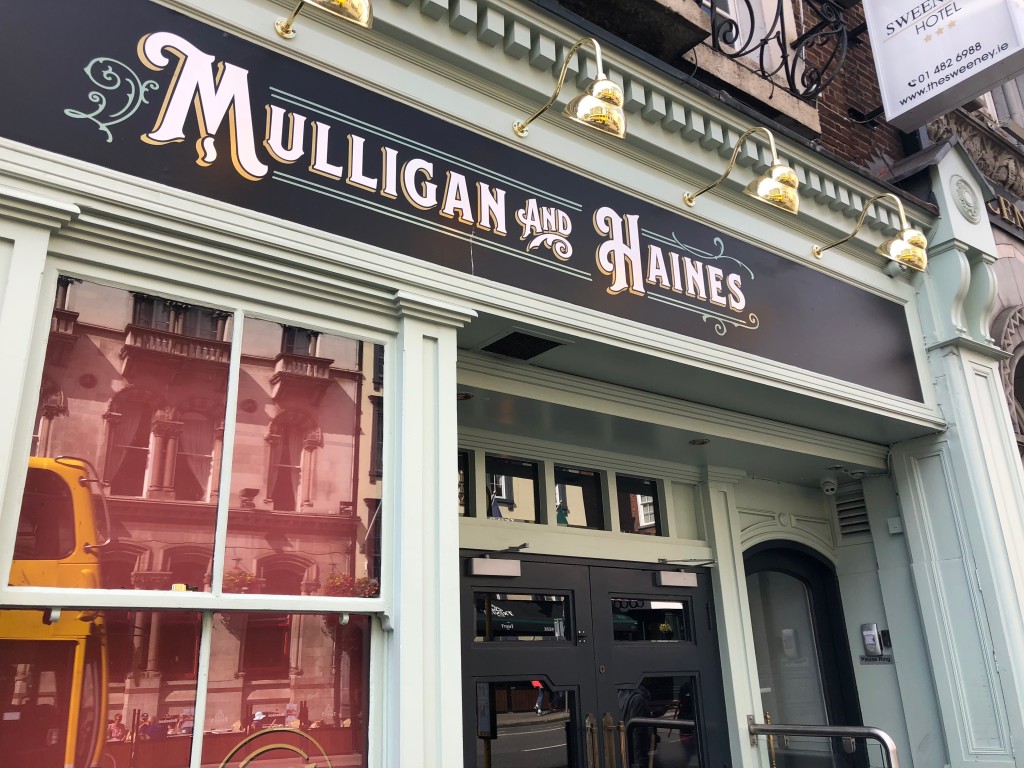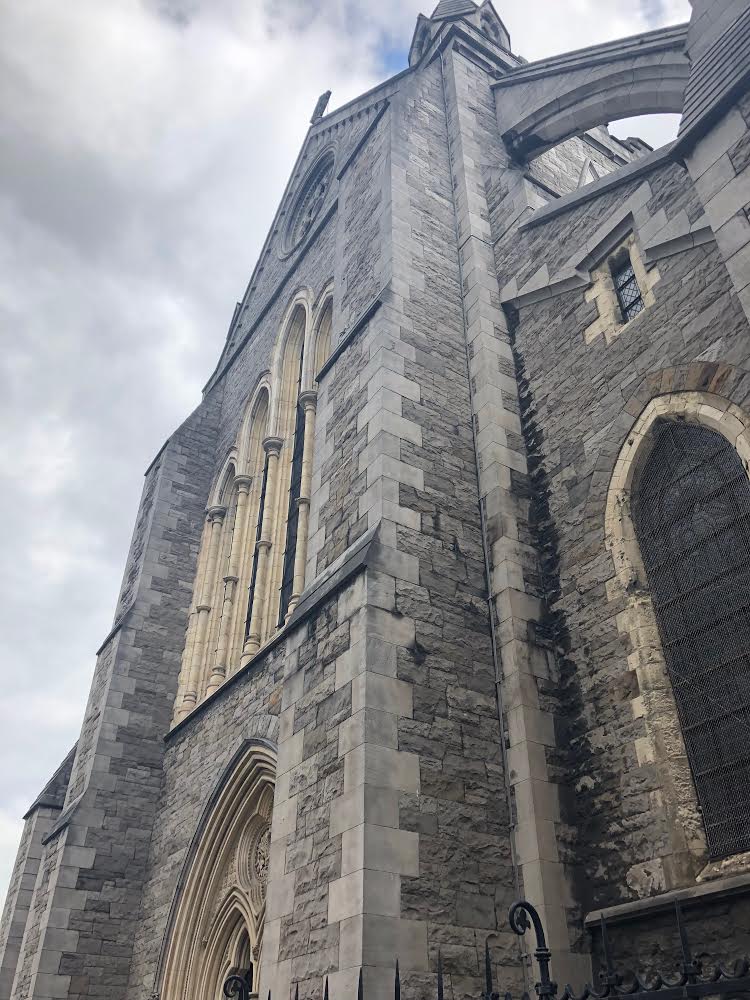
A couple days ago, I finished reading James Joyce’s “Ulysses” for the third time. That’s not meant to (entirely) be a brag, though it can’t help but sound that way with this book. (And, let’s face it, I am bragging a little.) Mostly, I mention the number of laps I’ve taken through June 16, 1904, because this book more or less insists on that kind of dedication.
And now I want to turn to a question that may have arisen to all none of you reading this post: Was it worth it? More to the point, did I actually like it?
That’s, on the face of it, a sorta weird question to have to ask about a book you’ve read three times. Of course, I liked it. If I didn’t, I’d have quit on Mr. Joyce’s playful menagerie of classical allusions, proto-hypertext and bodily fascination at least once out of those three times. But a novel that, let’s say, strongly encourages you to turn to a thick guidebook of structural unpackings and explanations of allusions also calls for a hefty justification. Why do all this work for an art form, the novel, originally intended to be light entertainment?
The initial justification, unfortunately, tends to be reputation, I think. Joyce, and this book in particular, have the academy behind them. It’s a notorious, difficult work of genius. It’s a book you should read. You won’t enjoy it, but you should do it. Buck up, sit at attention and swallow your vegetables.

Well, fuck that, right? For my part, I think my initial justification, back when I read this the first time (yes, for a university course) was that I’d been to Ireland. I spent the summer of 2002 in the Iowa Irish Writing Program, taking writing workshops and Irish literature survey courses with a group of other 20-somethings. (Also, we spent a lot of time in pubs, as you do.)
We read, as I recall, the first chapter of “Ulysses” in one of those survey courses. And the day I read that chapter, the universe, in its Joycean wisdom, aligned the cosmic system of allusions perfectly for me. I and a group of new friends from the program decided to attend a Latin mass. I don’t remember our reasons exactly. Just to experience another part of the cultural milieu of our study-abroad spot, I guess. Plus, at least one of our members was a religious-studies student. Then, with the rest of our Sunday to fill, we decided on a day trip out of Dublin. So, we took the DART out to Sandycove, where the James Joyce museum in Martello Tower stands beside the 40 Foot swimming spot.
I don’t think we realized that the chapter we’d be reading that evening parodied the Latin mass within Martello Tower, where Joyce lived for a week. Maybe some of us did, or knew it was set there, though I don’t think I did. It just sort of worked out that way.
So, from the start, nearly every word of “Ulysses” I’d read shimmered with meaning, firing off neural connections to things I’d just experienced or seen. It was about the country and city in which I’d chosen to spend the summer (with the encouragement and completely undeserved support, financial and otherwise, of my folks). It was about that city (Dublin, if you need to be told) more so than, I think, any other book is about any other city. It referenced the religious ceremony I’d just experienced, with the friendly Irish inviting us to take part in the proceedings. The chapter, for heaven’s sake, took place on the very tower steps that I’d just climbed that afternoon.
How could you not enjoy that?

And that’s how the entire book, I think, is intended to work. You’re not following anything traditionally linear. You’re entering a web of connections, a nest that grows increasingly baroque, adding more fractal levels, the more time and work you dedicate to the writing and the history, literature and culture it references.
In that firing of neural associations, the book works like a brain. You already know about the famous stream-of-consciousness technique, meant to mimic the flow of thought. But the allusions, the sparking of references, the flashes of recognition are brain-like in an even deeper sense. Getting this textual neural network to fire isn’t as easy for most of the book as it was for me on that first chapter. Even beyond brushing up on your “Hamlet” and your “Odyssey,” even beyond familiarizing yourself with Charles Stewart Parnell and other nuggets of Irish history, you just need to learn the memories of the book itself: Learn what Bloom’s thinking about when a snippet of song lyrics arises in his thoughts, feel the emotional pull of his and Molly’s memories of their first encounters, the rhododendrons on which they had their tryst. These are memories you get by reading them in the earlier chapters, and in your first times through the book. And so, you come to have the same memories that the characters themselves later have. The book asks you to map your mind, to some extent, over those of the characters.
Do this, learn these things, and the experience of reading “Ulysses” grows more and more delicate. You grow to understand how “Ulysses” fanatics come to feel such affection for the book’s characters. Reading this book — the more you do it — comes to mean making a sort of mind-meld with the characters. Their memories become yours. They become dear to you.
That’s just one aspect of the hyper-referential character of the book, of course. There’s also all the history, politics, literature, and pop culture I already mentioned. And I think this type of reading experience — this type of thinking — appeals particularly to me. I like to follow, in a very dilettante-ish manner, other bits of knowledge somehow relevant to what I’ve just learned. But it’s also a universal thing, I think. People like getting references. (Need I mention the Marvel Cinematic Universe here?) And they like being reminded of the past. Nostalgia affects and infects us all. We all like it when that old familiar song comes on at the bar. Joyce makes you learn the memories of his book, but once you do, it’s a terrific thing.

To avoid misleadingly making this all sun and roses, I’ll admit that sections, sometimes-long sections, of the book remained a slog, even this third, more-comfortable time reading it. Especially in the “Nighttown” section, I found myself asking, “What’s the point of more of this?” Another inanimate object offhandedly mentioned becomes a character for a moment and speaks a line. It was sorta funny the first couple times, but then it just became Joyce doing it because, well, why not? He could, so he did. (Then, though, you have the nagging suspicion: Maybe I’m just not getting it?)
I think if you have anything of the completist personality in you, then “Ulysses” might make a good match for you. It helps greatly to come in with some of the references already well in mind. I think most people who would even consider reading this book do, though. You know “Hamlet.” You know the “Odyssey.” You probably know at least a little about Ireland, or at least like the place. You’ve read “Dubliners. ” (If not, you really should. Much cheaper price of entry, and the writing’s lovely.) I’ve definitely got that personality for this kind of thing. One of my favorite things to do is read a book that’s related to a place I’m visiting. That’s a sort of stereotypically touristy thing to do, but the core motivation resembles a core pleasure with “Ulysses”: that feeling of the text, your environment, and all the little pieces of knowledge and memory in your mind pinging off one another in a self-amplifying piece of neural music.
While “the Dead,” the masterpiece of a finale to “Dubliners,” is immediately a beautiful piece of writing, “Ulysses” requires you to learn its loveliness. Put the work in, though, and tell me Molly’s soliloquy doesn’t fully knock you out.